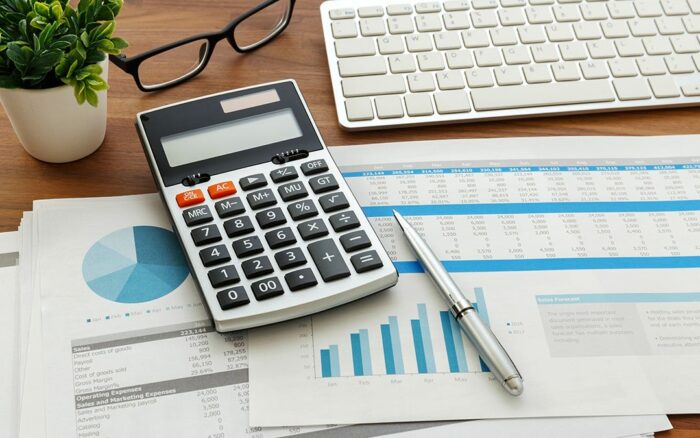Operating AssetsAssets that directly support a business's core operations
As a business continues its operations, it will accumulate assets that increase its value.
There’s cash, which is always an important asset for any business.
It allows the business to pay for operating expenses such as rent, maintenance, and the all-important salaries and wages of its employees.
Cash also allows a business to purchase other assets.
Then there are certain capital assets that facilitate the operations of the business, such as machinery and equipment.
For example, in a manufacturing setting, machinery and equipment facilitate the production of goods that the business will eventually sell for profit.
Aside from these assets, there are those that don’t necessarily contribute to the main operations of the business, but they can still produce profits.
We refer to these as non-operating or financial assets.
They might not contribute to the business’s main operations, but they can still generate revenue.
In this article, we will be focusing more on the assets that facilitate the main operations of the business.
We refer to these assets as operating assets.
What are operating assets?
Are they important for a business?
If yes, why should a business have them?
What are some examples of operating assets?
By the end of this article, we should have the answers to these questions.
What are Operating Assets?

Operating assets refer to assets that facilitate the main operations of a business.
They directly support a business’s revenue and profit generation.
Without them, a business most likely won’t be able to continue its operation.
For example, in a manufacturing setting, machinery and equipment are essential.
Without them, the business won’t be able to produce the goods that it will eventually sell for profit.
If you’re still unsure whether or not an asset is an operating asset, ask yourself this question: “Does the business need this asset for day-to-day operations?”.
If the answer is yes, then it probably is an operating asset.
For example, cash.
Does a business need cash for its day-to-day operations?
The answer to this is yes. That means cash is an operating asset.
An operating asset can either be short-term or long-term.
It could also be tangible or intangible.
Just keep in mind that an operating asset’s most defining trait is that it’s a necessity for business operations.
Assets that are meant for long-term investment purposes, such as marketable securities, are not operating assets.
In the same vein, assets that are no longer used for operations, such as assets held for sale, are also not operating assets.
That also goes assets that are held for investment purposes such as investment properties.
All of these assets don’t contribute to the main operations of a business.
Examples of Operating Assets
Here are some examples of operating assets:
Cash
Cash is an asset that needs no introduction.
It facilitates a business’s main operation by allowing the business to pay for operating expenses such as rent, maintenance, employee compensation, etc.
Without cash, a business might experience suspension of operations.
For example, if a business is unable to pay the salaries and wages of its employees, they might protest and stop working until the business pays them.
If a business is unable to pay rent, the landlord might eject them.
Having enough cash is also important for a business’s liquidity.
Accounts Receivable
Accounts receivable accumulate when a business makes a credit sale.
They represent the amount that customers owe to the business.
Proper accounting of accounts receivable is essential if the business wants to produce cash inflow from all of its sales.
Just the accumulation of accounts receivable isn’t enough, however.
The business must be able to convert them to cash.
Uncollectible accounts don’t have value, meaning that they’re worthless.
Inventory
Inventory refers to the goods that are still available for sale.
Selling them results in the generation of revenue (and consequently, profit).
For a business that mainly deals with the sales of goods, proper accounting of inventory is essential.
What comprises inventory will depend on the business itself.
If the business mainly deals in the sale of clothes, then the inventory will comprise clothes.
If it deals in the sale of food, then the inventory will mainly consist of food.
Property, Plant, and Equipment
In a manufacturing setting, a business is expected to have a production plant.
It is an asset that houses the manufacturing function of a business.
Of course, just having a place to house the manufacturing function isn’t enough.
The business must have the proper machinery and equipment that facilitate the production of goods that the business will eventually sell for profit.
Intangible Assets
Certain intangibles are considered operating assets too.
For example, if a business needs a license (which is an intangible asset) to produce certain goods, then it’s an operating asset.
Without the license, the business cannot legally produce the goods that the license covers.
Other intangible assets can also be operating assets too as long as the business recognizes them in its books.
A patent has the potential to give a business an advantage over its competitors.
A copyright protects a business’s intellectual property.
These are both necessary to ensure that the business can generate as much revenue as it can.
Operating vs Non-operating Assets
While there’s nothing wrong for a business to only have assets that are operating assets, it’s rarely the case in real life.
A business will almost always have a mix of operating and non-operating assets.
So what differentiates the two types of assets?
Firstly, operating assets are necessary for the main operations of a business.
They directly support the generation of revenue.
On the other hand, a business can still operate even without non-operating assets.
Meaning that a business doesn’t necessarily need them.
Operating assets facilitate the generation of a business’s main revenue.
They do this by being directly involved in the operations of the business.
For example, machinery and equipment facilitate the production of goods that the business will eventually sell for profit.
On the other hand, any revenue that a non-operating asset produces will be considered as other income.
For example, any dividends that a business receives from the shares it owns will always show on the income statement as other income.
It will never be part of the main revenue.
You can think of non-operating assets as a way for businesses to earn extra income.
They’re not necessary for the main operation of the business, but the additional income they produce is always welcome.
Meanwhile, operating assets are necessary for the generation of a business’s main revenue.

Are Operating Assets Important?
The short answer is yes, operating assets are important for any business.
Operating assets are necessary for the main operations of the business.
Without them, you can say that a business can’t function.
They directly support the generation of a business’s main revenue.
You can expect any successful to have operating assets.
Some investors may even emphasize the importance of operating assets, going so far as to push the business’s management team to liquidate non-operating assets.
The proceeds from the liquidation will then be returned to the investors in the form of dividends or any other similar item.
In fact, a sign of excellent management is when a business can continually produce revenue and, more importantly, profit with the least investment in operating assets.
However, this isn’t always easy to gauge.
Growth almost always goes with an increase in assets.
As the business grows, its new sections or branches will require certain assets to facilitate business operations.
FundsNet requires Contributors, Writers and Authors to use Primary Sources to source and cite their work. These Sources include White Papers, Government Information & Data, Original Reporting and Interviews from Industry Experts. Reputable Publishers are also sourced and cited where appropriate. Learn more about the standards we follow in producing Accurate, Unbiased and Researched Content in our editorial policy.
NYU Stern "Cash and Non-operating Assets" White paper. April 18, 2022
Internal Revenue Service "1.35.6 Property and Equipment Accounting" Page 1 . April 18, 2022
